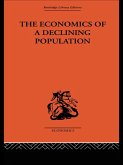An Essay on the Principle of Population was first published in 1798 under an alias, but Thomas Robert Malthus's identity was soon made public. The book foresaw problems in the future because, according to one interpretation, population growth would follow a geometric progression (doubling every 25 years) while food production would follow an arithmetic progression. This discrepancy would lead to food shortages and famine unless birth rates were to fall. Despite not being the first book on population, Malthus's work sparked discussion about the size of the population in Britain and helped the Census Act of 1800 become law. A national census was made possible by this Act, starting in 1801 and continuing every ten years to the present in England, Wales, and Scotland. Charles Darwin and Alfred Russel Wallace both regarded the book's sixth edition from 1826 as having had a significant influence on their work on the idea of natural selection. The Malthusian Law of Population, as it is presently called, received significant attention in this book. According to the hypothesis, rising population rates result in a greater supply of labor, which eventually drives down wages. Malthus essentially believed that poverty is a natural byproduct of population expansion.
Dieser Download kann aus rechtlichen Gründen nur mit Rechnungsadresse in A, D ausgeliefert werden.









